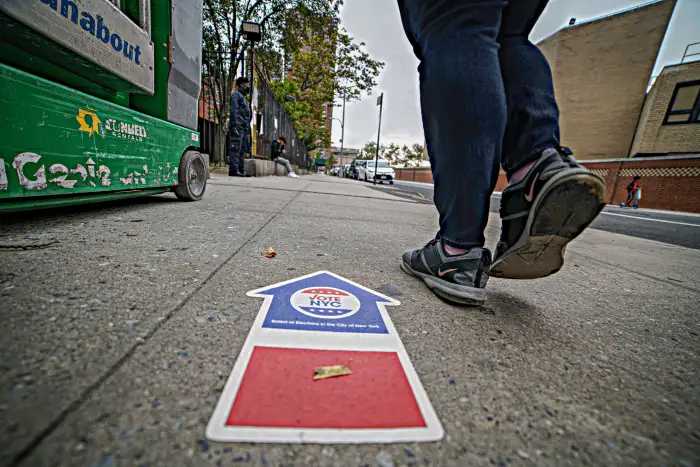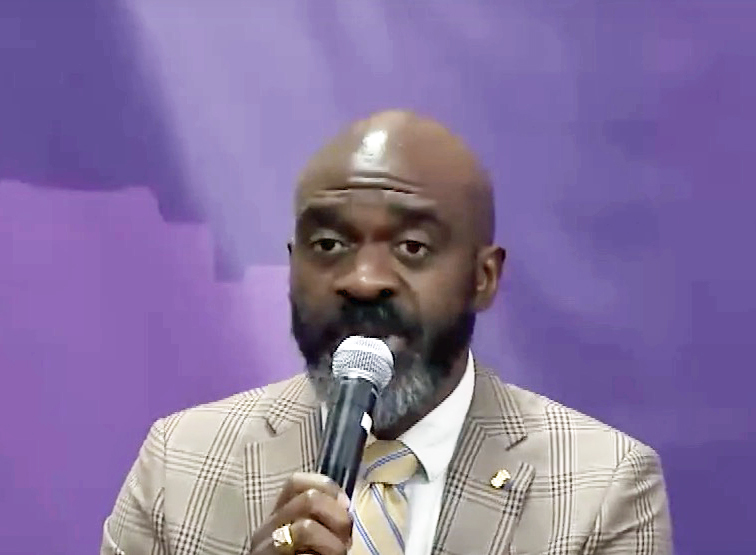Election season is in full swing nationwide, but young voters in New York apparently don’t seem to care.
As the 2024 presidential election approaches, concerns about youth voter registration in New York persist. In New York state, only 42.7% of eligible first-time voters are registered to vote, significantly less that the 77% of eligible residents aged 45 years or older. Voting organizations observed only a slight increase over the last few months in 18-year-olds who registered, from 40.4% to 42.7%.
The low youth numbers are not for a lack of effort.
Studies by The Civics Center, a grassroots organization working against youth voter suppression, show that roughly 136,000 18-year-olds in New York remain unregistered despite recent laws requiring school boards to educate students about voter registration and pre-registration. The latter of which is reserved for 16 and 17-year olds who aren’t old enough to vote but want to be out in the voting system.
Nevertheless, in one organization’s recent reports, pre-registration has declined recently from 20.5% to 20.1%.
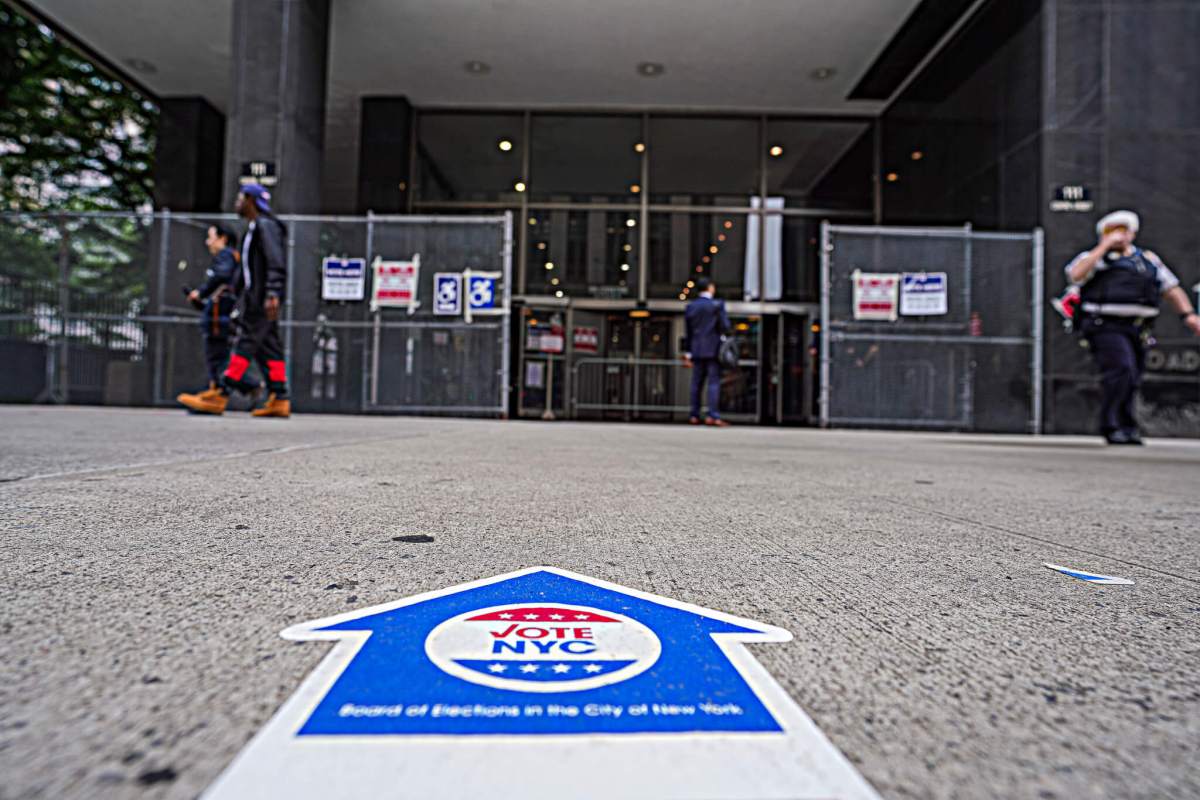
Laura W. Brill, CEO and founder of The Civics Center, said far less attention is paid to increasing youth registration in non-swing states. She said more robust voter registration efforts tend to be conducted in states that are in play.
“In states that aren’t swing states, you don’t have a lot of organizing efforts focused towards young voters since the state isn’t seen as competitive,” Brill told amNY Metro. “This creates a vicious cycle where low registration rates for young people make it hard for smaller campaigns to allocate resources to engage them effectively.”
The Impact of Social Media
One young voter, Jasmine, a 21-year-old in Brooklyn who declined to provide her last name, said she relies on social media to keep up to date on potential candidates and political happenings.
“Most of my research comes from online. It’s the easiest,” she said. “But many news sources are biased and spin things in a way that I don’t really appreciate.”
Young people are leveraging online platforms to connect with candidates. For example, the growth of Trump’s TikTok, which sits at 10.8 million followers, surpasses Harris’ 4 million. Harris’ campaign has been praised for using social media when engaging with Gen-Z. The TikTok account KamalaHQ, formerly BidenHQ, jumps at opportunities to use songs popular among young voters and appeal to Gen-Z’s humor.
Trump’s TikTok, meanwhile, features similar videos often with popular content creators and clips of him addressing the camera discussing how to vote, inflation and more.
Gen-Z often engages with their content via comment and repost but it’s not all fun and games to voters.
These young people are still wary about potential misinformation and propaganda.
“Positive relationship-driven connections struggle to get through all of the misinformation,” Brill said, noting how this lack of trust feeds a cycle of disengagement among young voters.
One of these disengaged youths is Yudenys Cepeda, a 21-year-old student who said she’s registered to vote but doesn’t plan on voting in this upcoming election because she doesn’t feel connected with the candidates.
“I look for candidates who do a lot for their communities in need,” Cepeda said. She mentioned she felt drawn to Vice President Kamala Harris’ campaign since Harris would make history as the first female president, but Cepeda was still uncertain if she’d vote.
How Gen-Z Views Harris v. Trump
Voters of Tomorrow, a Gen Z-led group that engages young Americans in politics, found that, like Cepeda, young people nationwide are leaning towards Harris, finding her views on issues more favorable than those of the Trump-Vance campaign.
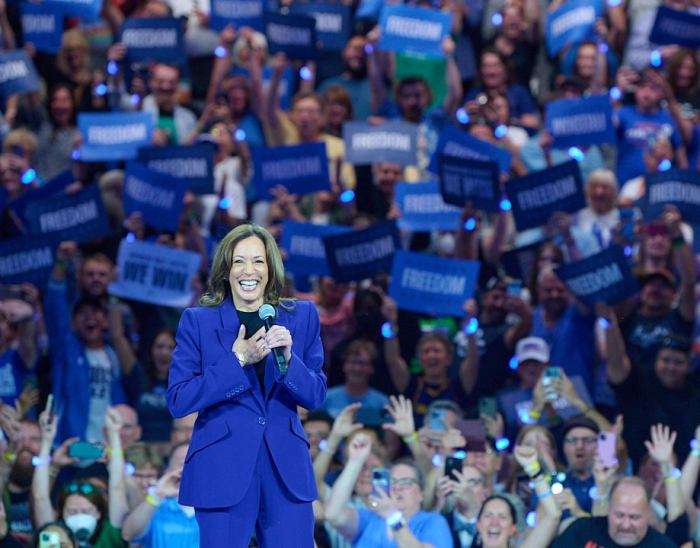
Voters of Tomorrow—which surveyed 1,601 people between 18 and 29 in swing states, including Arizona, Georgia, Pennsylvania, Michigan, North Carolina, Nevada, and Wisconsin—released its findings where survey respondents overwhelmingly said they found Harris as a more trustworthy candidate on polled issues, which included abortion, healthcare, jobs, and immigration.
The group reported that 54% of young people and 66% of registered young voters in swing states support her candidacy, as opposed to Trump’s 22% with both groups.
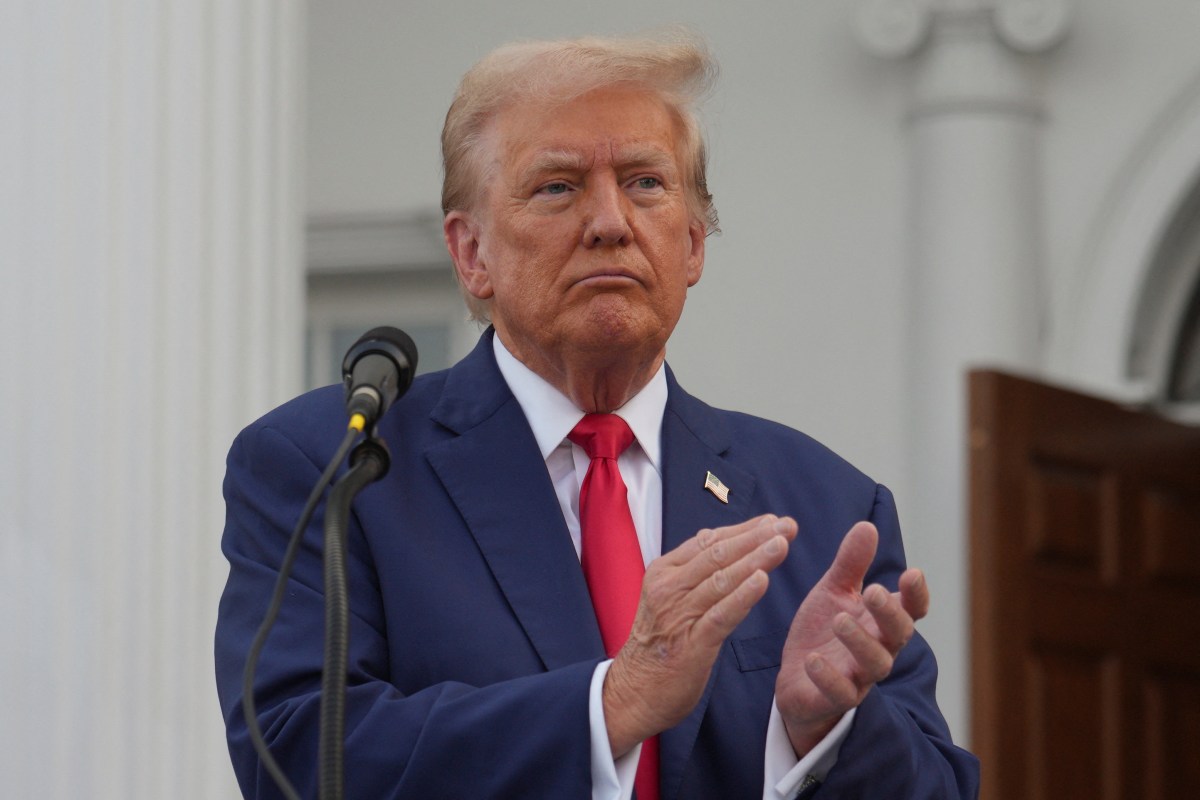
“Young people in battleground states want a president who can tackle the issues facing us in our everyday lives. They believe that leader is Kamala Harris,” Santiago Mayer, executive director of Voters of Tomorrow, said in a statement.
These numbers come after young people showed up in record-breaking numbers for the 2020 election. Reports from the Census Bureau show that the 2020 election saw the highest turnout from young people in the 21st century. Voter turnout for those 18 to 24 was at 51.4%.
So what is happening between 2020 and 2024? According to a poll conducted by the Institute of Politics at Harvard Kennedy School, there has been a dissatisfaction with current and former presidents, a lack of preparation, and a lack of trust.
Potential solutions
Organizations like The Civics Center and Voters of Tomorrow are actively calling for increased efforts to connect with young voters in New York.
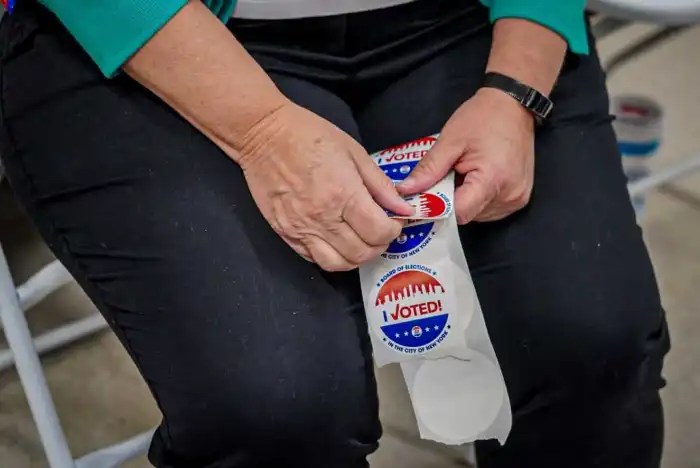
“Young people have a lot of serious issues that they’re concerned about,” Brill said. “It’s beyond hot topic issues like gun violence and reproductive freedom; it also includes mental health and housing affordability, especially in New York. It’s urgent for the future of this country that we break this cycle and help young people talk to candidates and for candidates to learn what matters to young people.”
When it comes to ensuring Gen Z is registered to vote, Brill said early involvement by high schools can be the key.
“Most people still don’t realize that pre-registration starts at 16, which means high schools have an incredible ability to engage their students in an educational setting,” she said. ” And students themselves can take a leading role in getting their friends and classmates registered.”
Jayden Prophet, an 18-year-old student, registered at his high school in a pre-registration event, which he said made the whole process easier.
“Young people see the political unrest happening here and overseas, so I feel like political knowledge needs to be given in high school,” he said. “The younger generation has a firmer grasp on what they want. They’ve seen previous generations and what they’ve done and don’t always agree with it. I can see them taking over… and making real changes.”
The Civics Center offers tools and incentives to entice young people to get involved with politics. One current promotion offers gift cards to kids who ensure their school is registered to vote. These tools can be found on their website.
The upcoming weeks will be crucial as the state and surrounding organizations strive to mobilize its youth’s voices in the electoral process.
Online, mail-in and in-person voting registration ends on Oct. 26.
In New York, anyone of age and with a proper NY.Gov ID can register online. Other residents must request their absentee ballot by Oct. 26.
Read More: https://www.amny.com/politics/



